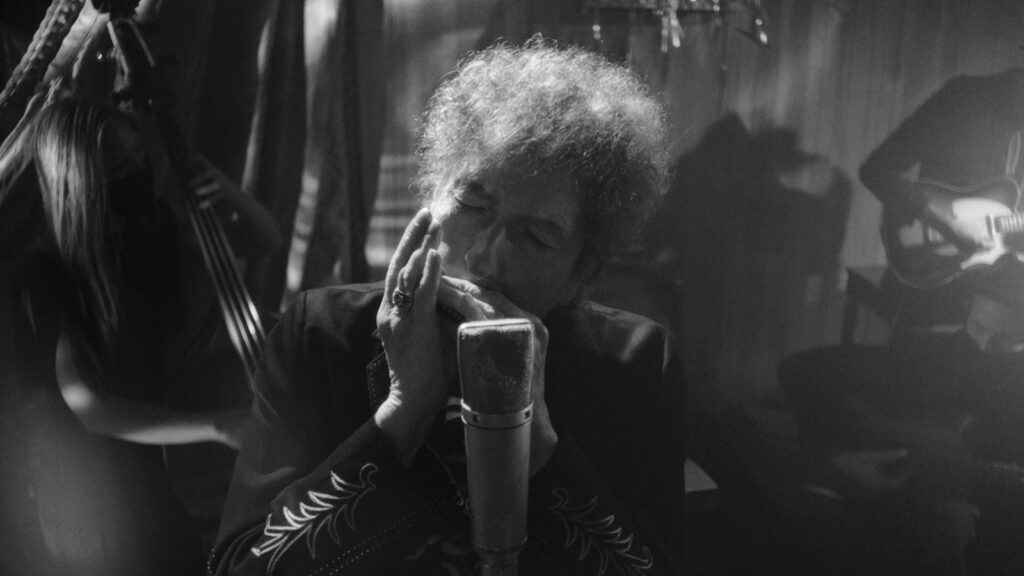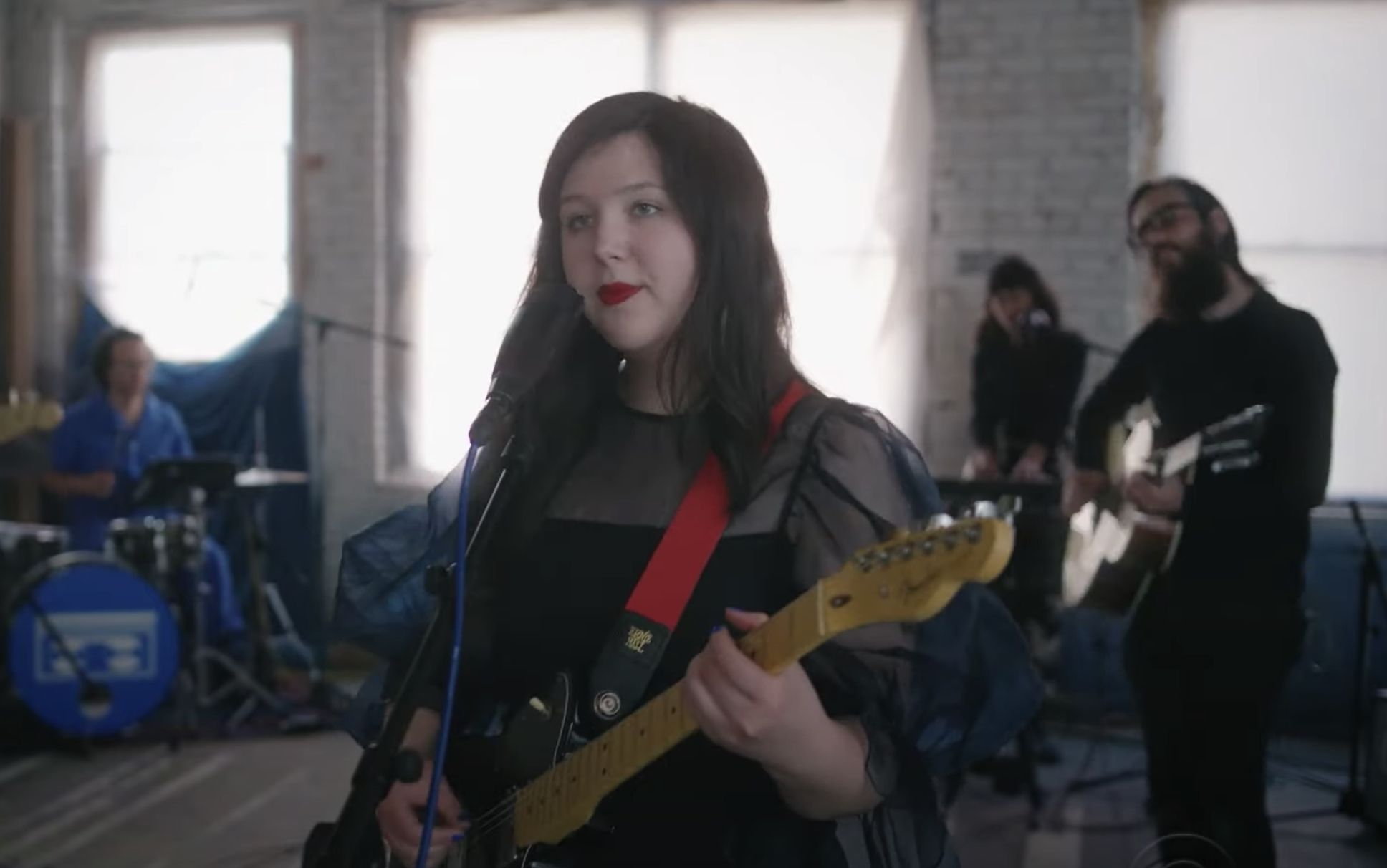
Bob Dylan Makes His Classic Songs Seem Stunningly Brand-New on ‘Shadow Kingdom’
For fully half of Bob Dylan’s career, his primary focus has been the road. Since the late Eighties, he’s done plus-or-minus a hundred shows a year, pandemic excepted. Along the way, he’s been remaking his catalog, twisting the classics into drastic new shapes. He’d always done that, of course, from turning his folk songs into electric rock in the mid-Sixties, on down to his infamous speed-snarl through “Masters of War” at the Grammy Awards in 1991. That sense of constant evolution also seems to have played a role in shaking loose his songwriting and record-making process, starting with Time Out of Mind in 1997. Hearing Dylan play yo-yo tricks with his own music would become the very reason to see him for many of his most dedicated fans — the kind who want to hear all the versions, because they’re always different. His improvisational spontaneity has made him the opposite of an oldies act.
What makes his intimate new release, Shadow Kingdom, a triumph is that it’s the ultimate version of both sides of Dylan’s late career. It brilliantly reinvents some of his most iconic songs, while also feeling like a definitive recording itself. Shadow Kingdom was originally a streaming event available for a week in July 2021. But this 54-minute live performance was not the concert special many had expected. Instead, it was a film of Dylan and Covid-masked actors miming to new studio recordings of some his most beloved songs, with an all-star group of backing musicians that included, among others, Don Was (upright bass), T Bone Burnett (guitar), and Greg Leisz (pedal steel, mandolin). Director Alma Har’el’s black-and-white filming frames Dylan and his onstage “band” strikingly — every player is in most every shot, along with plenty of the audience, who are dressed up like they’re hanging around the bar in Casablanca.
Now, the studio recordings of the songs that appeared in Shadow Kingdom have been collected for this album, proof that as striking as the film was, this is a project that was made for listening. The songs even segue together, each one drifting into stray notes that quickly cohere into new patterns, like a DJ set or an exceptionally compact Grateful Dead show. The material here skews toward the 1960s, with three exceptions: “Forever Young,” from 1974’s Planet Waves, “What Was It You Wanted?,” from 1989’s Oh Mercy, and a new instrumental closer, “Sierra’s Theme.” But the powerfully understated arrangements seem to come from somewhere in time between the two World Wars, if not from before the 20th century began.
Even the electric instruments appear to barely be amplified. At times, the guitars on “Most Likely You’ll Go Your Way (And I’ll Go Mine)” sound like they don’t have resonator boxes; it’s nonstop scrub-strumming against Jeff Taylor’s lonesome (and very Gallic) squeezebox, which airily carries the chords. Throughout the entire album, Dylan’s singing is sly and effortlessly powerful. His voice here has body, its rough edges cannily elided, his phrasing constantly finding new angles on lyrics that may once have seemed nailed in place. “I’ll Be Your Baby Tonight” sounds like a drunken plea rather than a lover-man come-on — not an unexpected twist, but Taylor’s skeletal, forlorn playing adds depth to Dylan’s pathos.
The most drastic change-up may be the new version of “Tombstone Blues.” In 1965, the song rattled along at a manic pace, Dylan’s delivery daring the listener to keep up, and giddy enough to force us to — the tombstone he’s singing about is still a long way off, though it’s faintly visible. Here the song is slowed to a wry crawl. Where the litany of names Dylan runs through in the lyrics — Brother Bill, Ma Rainey, Cecil B. DeMille — once gleamed like lit-up roadside signs, here they suggest a funeral notice. But that mordant, mortality-steeped feeling doesn’t bring the music down a bit. This barebones performance absolutely sparkles — a “Tombstone Blues” that’s much quieter than the original, but so spry that it’s irresistible. It stands totally on its own, and so does the album it’s on.



